Come Out and Shop With These LGBTQ+ Entrepreneurs
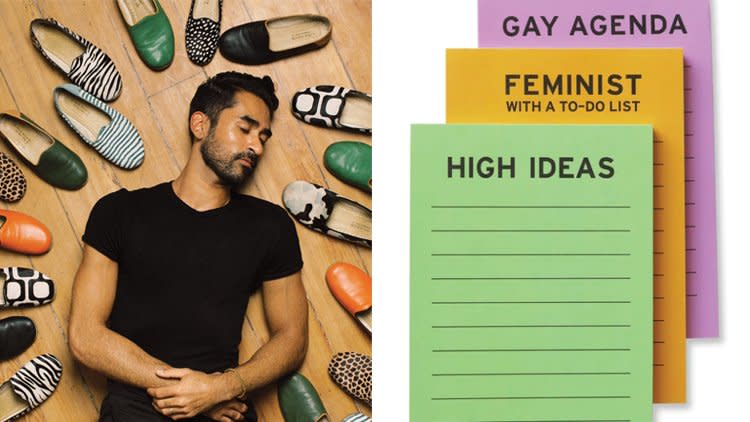
When Sarah Carson launched Leota, a 10-year old inclusive fashion brand, the queer founder wondered if being open about “being an inclusive, LGBTQ-owned brand” was “worth the risk of potentially losing customers?” She’d been out personally since she was 19 and kept her personal life quiet.
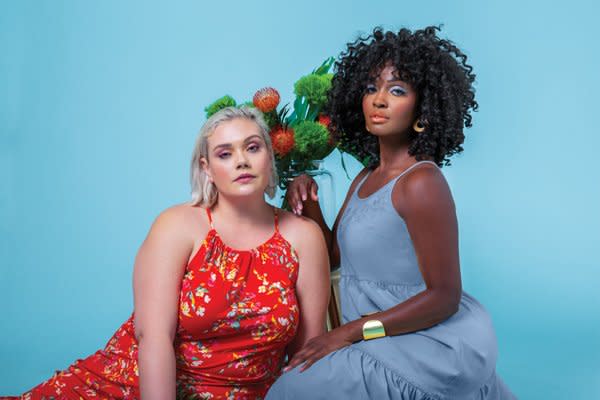
“I’m not sure how much of it was sexism and how much of it was homophobia, but fear of both kept me compartmentalizing,” she says. “I found my covering to be exhausting and it made me angry after a while. It struck me as quite unfair that some people got to show up and be themselves and some of us had to leave a part of ourselves at the door. This inspired me as an entrepreneur. What if there were a workplace where you could truly be yourself and not have to worry about your intersectionality being an issue? I decided to create that environment myself and made inclusivity a cornerstone of our workplace culture at Leota. I didn’t make a big deal about this to my customers as a fledgling brand. Safer to focus on the clothing I was designing.”
But Carson wanted to do more than just come to work. As one of the few fashion brands owned by women (only 14 percent are female-owned), she wanted Leota to be a queer-owned brand that would “inspire self-love and joy in women, rather than diets and conformity.”
But while her business practices were firmly rooted in principles of feminism, anti-racism, inclusivity, and meritocracy, she says, she thought she could do all of this while being relatively closeted professionally because “I already have to work against unconscious bias as a woman, why add another one to the potential reasons to write me off?”
What if her customers decide not to buy from her anymore? “We’re still an independent small business with no investors to give us cash if we face a shortfall. I spent the last decade building Leota from scratch, and I really do have something to lose. Conformity is the price of entry in fashion.”
After so much “dystopian” news — including the overturning of Roe v. Wade, a “don’t say gay” law in Florida, trans youth being denied gender-affirming treatment, mass shootings, Black people getting murdered by police officers, attacks on Asian-American people, and the war in Ukraine — “we finally realized we couldn’t hide in our closet anymore. There are serious trade-offs, but our choice is to not sit in the middle, but rather come out and say what we believe in. This has been really uncomfortable for me personally because it is much safer to stay out of the conversation and out of the fray, and in the closet. But I can’t live with myself if I don’t.”
“I’m making fashion for all. I want anyone to be able to put on Leota and feel like a million. Leota is for all — I mean men, women, nonbinary, trans, everyone. Fashion is about self-expression, and I want to be a part of the freedom that comes from dressing up as yourself. And I want people to know that this contribution to fashion and culture is coming from a diverse team of creators.”
We’re betting Leota’s customers will stick with her after all these years. (Shop.Leota.com)
Other out and proud founders in the stores:
When gay Brazilian-American renaissance man Diogo de Lima (pictured below) dreamed of starting his own footwear company, he didn’t quit his day job. A ballet professor at Tulane University and a choreographer for productions at the famed Marigny Opera House in New Orleans, de Lima has worked on television and film productions as well. His recent endeavor is Lima Hahn: gorgeous handmade shoes crafted in Gaziantep, Turkey, by master artisans who have passed down the know-how through generations. The organic leather shoes with water buffalo outsoles are made without preservatives and mold to the shape of your foot (making them both ephemeral works of art, imperfections included, as well as enduring footwear). The Polka Dot is next on my wish list. ($220 and up, LimaHahn.com)
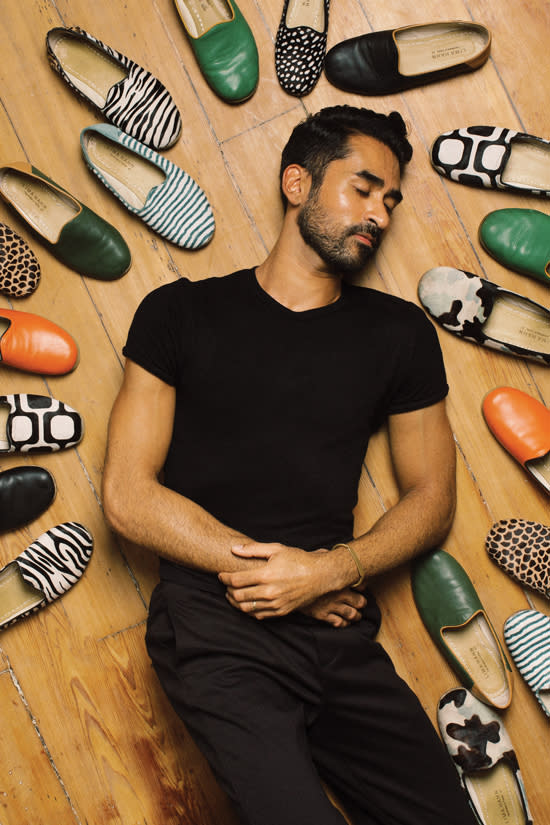
Another gay-owned company is everywhere these days. Boy Smells began as an experiment in candle-making in the Los Angeles kitchen of co-founders and partners Matthew Herman and David Kien in 2016. Herman and Kien, both fashion veterans, make candles and other products that are described as “genderful” and “beyond the gender binary.” For lovers of fall campfires, Boy Smells has the answer: their Cedar Stack candle has a classic woodsy scent (think cedar chips and dried tobacco) and the Ash, with dry hay and palo santo, offers up whiffs of charred cloves and smoke. Both modern and nostalgic, the effect is instant glamping in a candle. ($36 and up, BoySmells.com)
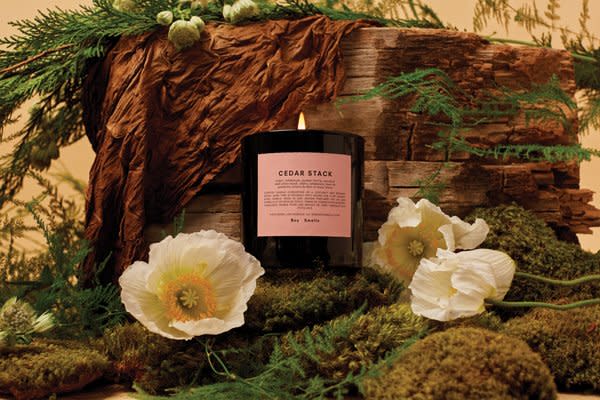
By the time the New York Times declared 2021 the “year of Telfar,” queer Liberian-American designer Telfar Clemens had already led the charge for inclusivity for years with his brand, Telfar. Now, his legendary bags (dubbed “the Bushwick Birkin”) aren’t the only thing folks clamor for: his streetwear and shoes (like the must-have Logo Boots pictured on this spread’s opening page) are TDF, too. ($796, Telfar.net)
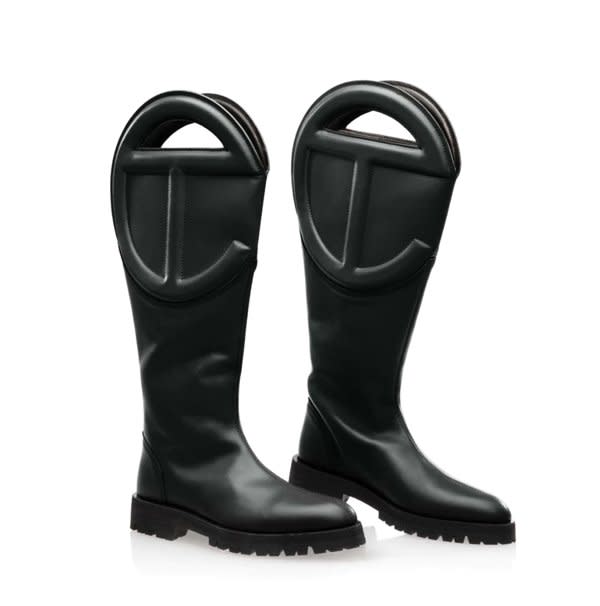
Founded in 2012 by queer, chronically ill artist Nicole Russell, the gifts and stationery brand Word for Word Factory combines her obsession with clever design, tiny gifts that don’t break the bank, and accessible art. Case in point: the now infamous lavender Gay Agenda check-list notepad.
($9, WordForWordfactory.com)
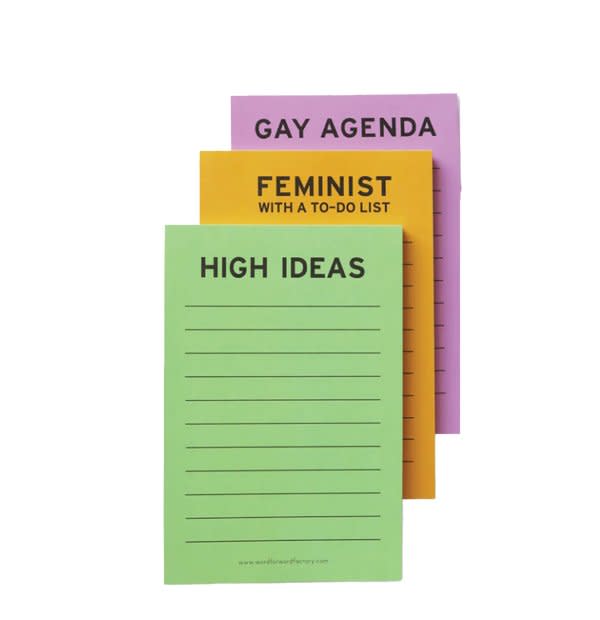
This article is part of Out's September/October 2022 issue, out on newsstands August 30. Support queer media and subscribe — or download the issue through Amazon, Kindle, Nook, or Apple News.

